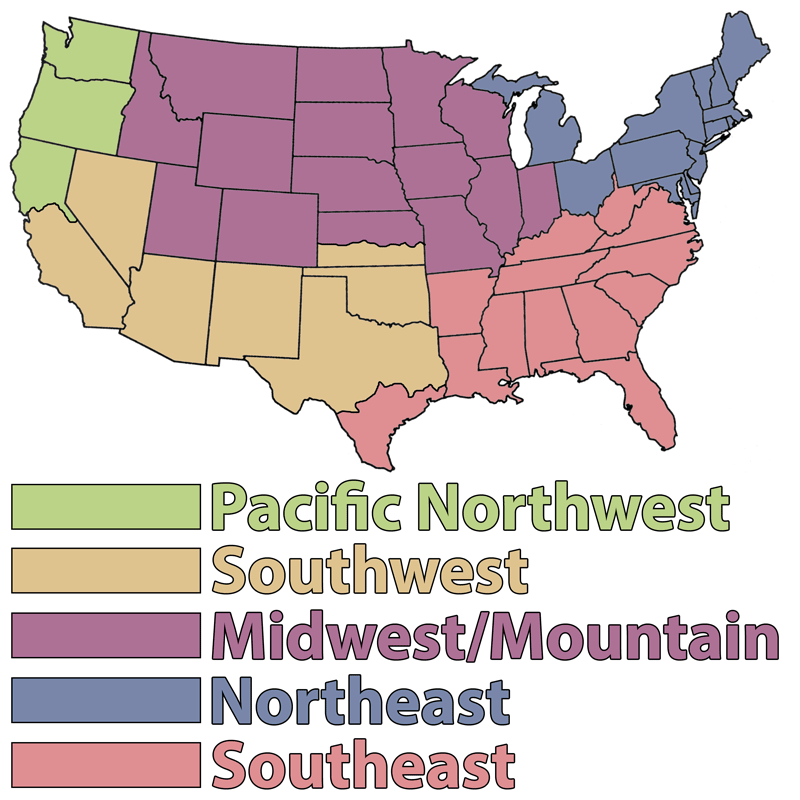Water in the early morning to avoid any evaporation. Water the soil rather than the plants to avoid disease. Let the soil surface dry out before watering again.
Gardening "To Do" Tips by Month for Hope, BC
Fertilize your lawn early this month for the last time before fall.
Ensure that your lawn is getting an inch of rainwater per week—or, water more frequently.
Apply a layer of mulch in your gardens to conserve moisture and reduce weeds.
Stake tall plants, such as delphinium, lupine, and tomatoes.
Plant beets, bush beans, carrots, cauliflower, broccoli, lettuce, kale, and peas to provide fall and winter crops.
Plant potatoes. Mound up soil around their base to create a small hill.
Add compost or cow manure to rhubarb an asparagus beds. Water deeply.
Check your plants for diseases or insects and treat when necessary. (See our Pest pages.)
Water tomatoes very evenly and apply a 2-inch layer of mulch. This may help to avoid early and late blight. Prune for air circulation and remove damaged leaves. Treat with fungicide if needed.
Keep your annuals and perennials blooming by removing all of the dead flowers.
Continue harvesting fruit, vegetables, and herbs to encourage more growth.
Do not fertilize your trees and shrubs after mid-July because the new growth will not harden off in time to avoid any winter damage.
Be sure to keep weeding; weeds will compete with your plants to use up nutrients and water.

